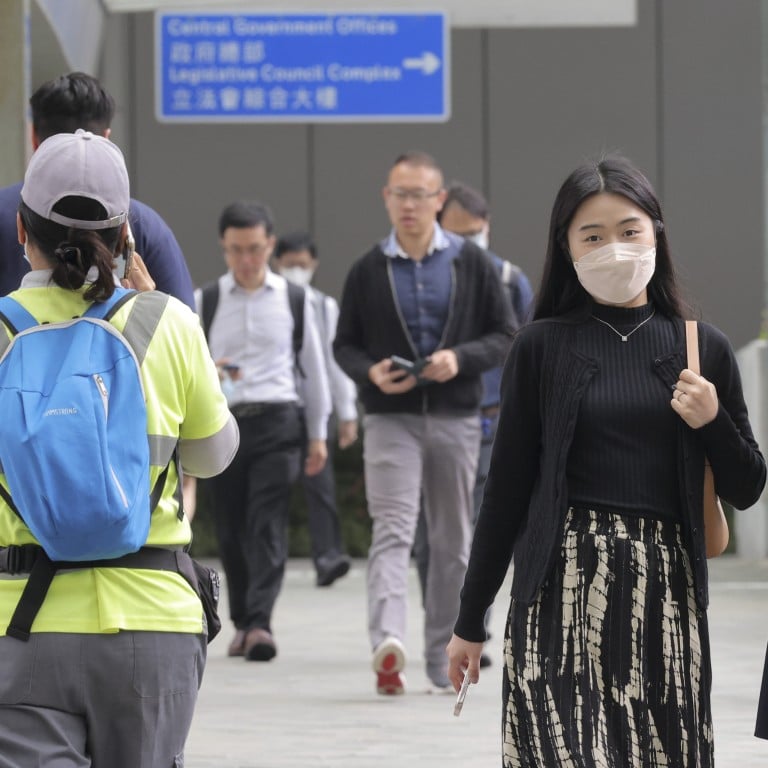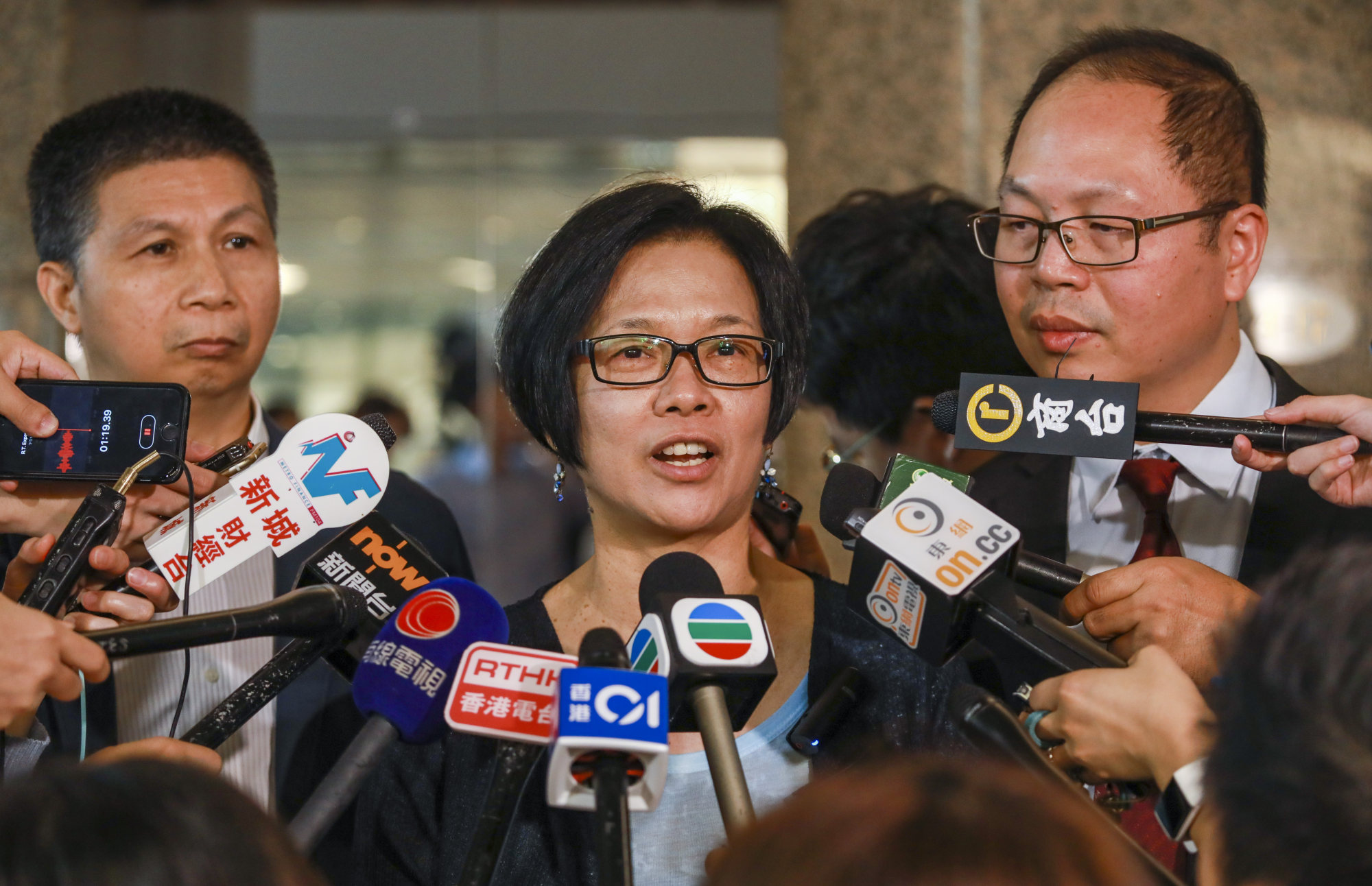
Hong Kong civil service union asks for 5.1 per cent pay increase across the board, higher than the maximum 4.65 per cent suggested by pay survey
- Hong Kong Chinese Civil Servants’ Association says pay rise would help ‘boost morale’ in public sector
- Association leader Li Kwai-yin insists figure is realistic and in line with accumulated inflation
Hong Kong Chinese Civil Servants’ Association president Li Kwai-yin on Friday said it was a realistic figure and in line with accumulated inflation.
“A 5.1 per cent pay rise allows civil servants to share the fruits of economic recovery … and recognise their concerted efforts during the pandemic and amid the manpower shortage, this could help unite the team and boost morale.”

The rate proposed by the association was revealed after its representatives met the Civil Service Bureau chief.
The news came a week after last Wednesday’s release of the pay trend survey, which suggested increases of 2.87 per cent for civil service high earners, 4.65 per cent for middle-ranked employees and 4.5 per cent for junior staff, based on information collected from 108 private companies.
The figures are one of the six factors used to set the annual pay increase for the public sector.
Others include the state of Hong Kong’s economy, changes in the cost of living, the government’s financial position, pay claims from the staff side and civil service morale.
Li said that for about a third of the time in the past four decades, the government did not follow the pay rise indicators suggested by the survey, but there had been cases where the government authorised an increment soon after a pay freeze.
All civil servants had a pay freeze in 2020 and 2021, when the city was hit hard by the Covid-19 pandemic, but they got a 2.5 per cent pay rise across all bands in 2022.
Hong Kong civil servants ‘could get 4.65 per cent pay bump’ amid improving economy
In the previous two financial years, the government lost 4.8 per cent and 5.9 per cent of civil servants, 8,500 and 10,500 staff respectively.
About 1,800 and 3,700 respectively were staff who resigned their posts.
Li said, even if the government adopted the association’s pay rise proposal, it would not be enough to improve staff retention on its own.
“We are suffering from a serious manpower crunch and many civil servants have had to bear an extra workload. When they felt burnout, they would quit – that’s the vicious cycle we are facing,” she explained.
Li appealed to the government to review the pay structure for some positions that were better paid in the private sector, like dental hygienists, who got 40 per cent less than their counterparts outside the public service.
Should pay rise for Hong Kong civil servants be lower? Private sector wants less pressure
A government job advert said the starting salary for a dental hygienist at the Department of Health was HK$18,120 (US$2,313) a month up to a maximum of HK$39,560 a month.
Li said other ways to retain staff included the provision of more promotion opportunities and full implementation of a five-day working week.
She warned the civil service also faced a demographic time bomb.
“The authorities should also allow those who joined before June 2000 to extend their retirement age, otherwise the manpower crunch would be even worse when the retirement wave hits,” she said.
The retirement age of civil servants used to be 60, but was increased to 65 after a revamp in 2015.
The retirement age for those in the disciplined services, such as police, the Fire Services Department and prison service, went up from 55 to 60.
People who joined the public service between June 1, 2000 and May 31, 2015 will have a choice of when to retire, but those who joined before the period do not.

